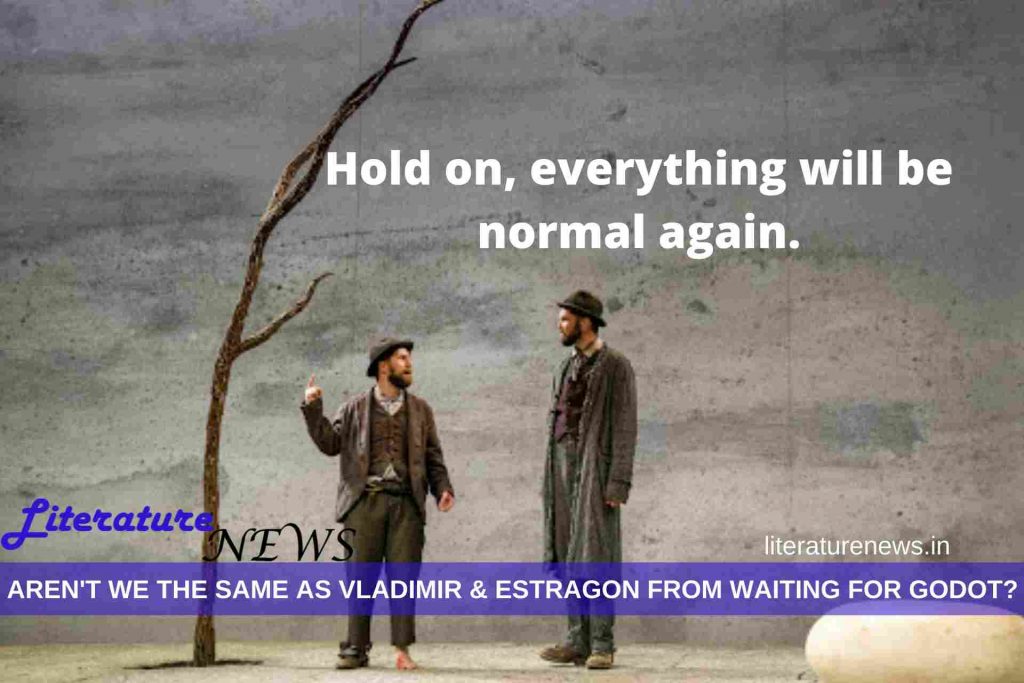Theatre of the Absurd generally dates back to the production of plays by Beckett and his disciples (acknowledged and unacknowledged). However, a few scholars have begun researching for absurdity in the works of Shakespeare as well; and, frankly, they and their research are not my concerns for the hour. I am trying to draw your attention to a specific work by Beckett, that perhaps led to the formation of the very idea of absurd plays, Waiting for Godot. Have you read it? Have you at least heard of it, if not read? If yes is the answer to any of the two questions, you are the ideal candidate to read this article and ponder on the ideas I try to bring to your attention.
In Beckett’s Waiting for Godot, there is an uncertainty that lingers everywhere. There is the gloom that overpowers imagination for a better time. The characters, Vladimir and Estragon, and the others that appear when their arrival was scheduled by the dramatist are not very certain about what they are doing. However, they do what they do and they do what they do with a conviction that raises the bars of absurdity. Nevertheless, today, if we try to place the artwork created by Samuel Beckett somewhere between 1948 and 1949 on the canvas that we have in front of us, the year 2020 which has proved to be the year of massive piles of uncertainty and sorrows, don’t we see hope? If you pay attention, you will see what we are trying to do here.
The condition here:
We don’t know when the schools will reopen. We have no idea when corporate buildings will begin functioning with normality. We don’t know when the supermarkets will be there catering to our needs for normal shopping waves. We are entirely uncertain when our recreation resources will be back – football, cricket, baseball, basketball, F1 racing, Moto GP, Bollywood, Hollywood and so on… however, aren’t we hanging there? Aren’t we having hopes? Aren’t we enjoying the life or just trying to enjoy the life with a conviction that we can be back to normal, and we will be… sooner or later? You should agree, fully or partially, that this is our condition, in short, today.
The condition in the play:
Vladimir and Estragon are two strangers. They are also two friends. They are waiting for something. They don’t know what are they waiting for. However, they are waiting for something, someone or uncertainty to become certain. They are waiting. They meet certain strangers. They talk. They move here and there. They sit where they were. They try to hang themselves. However, they are waiting constantly. Without any second thoughts, they are waiting for someone.
The analogy:
Isn’t it the same? Aren’t we acting exactly like Vladimir and Estragon? Aren’t we waiting incessantly for something? We are waiting for things to become normal again. We need to wait because we cannot do anything. And therefore, we have become many pieces of Vladimir and Estragon holding together our hopes and faith that someone or something will come and rescue our sinking ship of 2020-the-year.
by a contributor, Literature News
